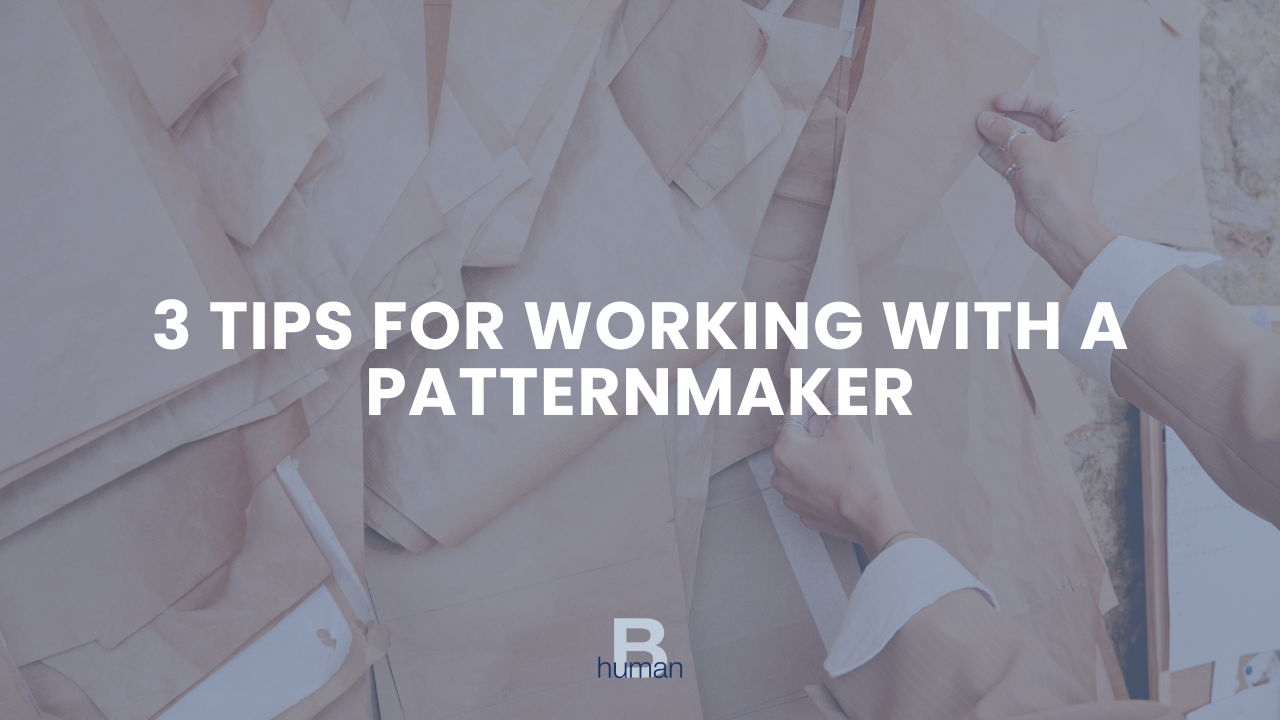A spec sheet and a tech pack are essential documents in fashion production, but they serve different purposes.
Mastering Quality Control in Apparel Manufacturing: Insider Secrets for Emerging Fashion Designers
Quality Control (QC) isn't just about ensuring your garments look good; it's your ticket to exceeding customer expectations, minimizing issues and setbacks, and optimizing production efficiency. By maintaining stringent QC standards, you deliver exceptional products and establish your brand as a reliable force in the industry.
When done right, it will make your life easier, decrease your stress level, increase your profit, and reduce waste.
5 Signs of a Bad Clothing Manufacturer
Clothing manufacturing is not for the faint-hearted. Working with the wrong manufacturer can end your business, especially if you are a new brand.
You can take steps to find the right factory. However, some signs will only be noticed once you work with the factory.
So what are the symptoms that should make you run away from a factory?
3 Tips For Working With a Patternmaker
What Are The Different Types of Samples And Their Purpose?
How Many Styles Should You Launch Your Fashion Brand With?
What is the ideal number of styles that you should offer when launching your fashion brand?
On one hand, you don’t want to invest in a big line until you get your proof of concept, but on the other hand, you want your line to look big enough so it will be taken seriously.
Is there a magic number you should be aware of?
How Many Rounds of Fitting Should I Have When Developing a Fashion Product?
Developing a new apparel product is complex and requires numerous rounds of samples and fitting before you can get it right.
If you are new to this process, and since each round is an additional cost and time, the question becomes how many fittings rounds is reasonable to have? And how many rounds are too many?
4 Tips for Getting The Best Results From Your Pattern Maker
Today’s post offers 4 tips to help you get the best results out of your pattern maker.
Knowing what to provide and how to direct your pattern maker is crucial to how well can they execute your vision. Whether you are a veteran or new to the industry the following should make your pattern maker job easier and will make you look like a pro not to mention save you time and money:
The New York Garment District
Ever wondered how the New York Garment District got its start? What happened to it and where it is heading?
In the Mid 19th century, New York City’s Garment District was built on ready to wear clothing that was mass produced and mass-marketed. The industry relied on the workings of a cheap yet skilled labor force—primarily immigrants of European Jewish and Italian descent who arrived in the United States trained in traditional tailoring.
During this time the garment industry was New York City’s largest employer, employing one hundred thousand people each year. Rapid growth was seen in twenty years when the amount of manufacturing firms increased from 562 in 1880 to over 1,800 in the 1900s.
In an effort to increase New York City’s shopping culture Fashion Row and Ladies Mile were
5 Points to Best Communicate Your Designs to a Sewing Contractor
As a designer, it is very important your collection is well executed for a show, presentation and market week, as well as the selling floor. And to have a well-made collection, or just a single garment, it starts after your designs are finalized and it’s ready for construction.
Most fashion houses already have their team of sewers who understands the design concept and know how each garment should be constructed, with some instructions given. However, majority of young designers don’t have the same resources. When they find a sewer or factory to sew their garments, young designers would think that this person would understand their design because of years of experience the sewer has under their belt. This is actually a BIG misconception. If no instructions given, the sewer can have a garment finished in a way that you originally did not want. This mistake would cost time and money.
When you give a new design to a sewer/factory, you should think ahead about the steps they
3 Reasons Why You Need A Tech Pack
When developing a product or collection from scratch it’s easy to start designing and planning without first considering the importance of how you’ll communicate your designs to the team that will help bring your vision to life. A tech pack is the fashion industry’s universal form that explains all the details and specs for each garment. Before getting too far into the design process, consider these three important reasons how a tech pack will help your business:
- Personal organization: Having a tech pack is almost like having a visual checklist for each style. In one compact place you can fill in all details relating to a garment until it is ready for
The Most Important Step to Get the Best Results From Your Production
This week I read a very informative article on manufacturing and production and it made me think: “What is the single most important step to get the best results from your production? “
I once had a teacher who said that if we simply do our homework and study, the test will be a breeze! And he was right, it worked for me. The same concept easily translates to fashion production.
DESIGN WITH PRODUCTION IN MIND! I know how boring and limiting this part sounds for a creative person like you, but following this motto is the single, most important step to turn your creativity and talent into a BUSINESS! If you plan your production process while you design your product and think ahead about each step, re: the logistics, the cost, the timeline, etc. your production will be easy and will have no tricky questions or surprises.
To help you with that, here are 3 tips you should follow when designing your next season:
Why Making Samples is So Expensive?
One of most asked question by young designers is: “Is this the price for only 1 sample? Why is sewing one sample so expensive?”
Lets go through the details together and i'll explain why is sample making expensive:
Making only one at a time – let’s think about baking for a second, If you’d make 1 cookie or 20 of the same type of cookies, the time and cost for either will be about the same, agree?














